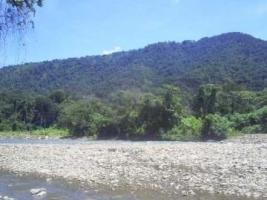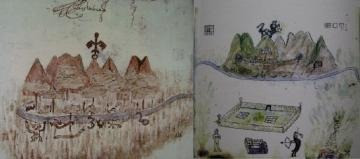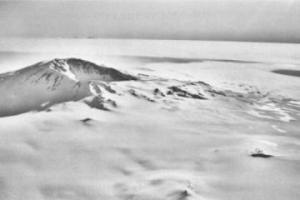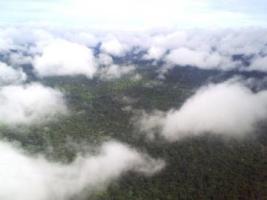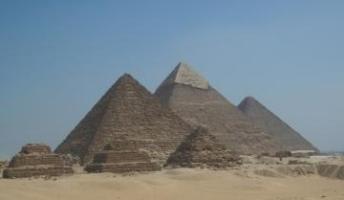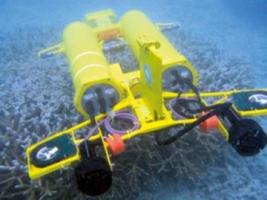Copy Link
Add to Bookmark
Report
Stuck In Traffic Issue 18

=================================================================
Stuck In Traffic
"Current Events, Cultural Phenomena, True Stories"
Issue #18 - September 1996
Contents:
Clinton's Missile Strike:
Clinton's justification for the latest missile strike against Iraq
both misrepresents the current situation in Iraq and the United
State's military objectives in the region. How can we trust a
President not to abuse his military powers?
In the Wake of Fran:
A report from the inland aftermath of Hurricane Fran. Central
North Carolina wasn't hit as badly as the coastal region, but it
was enough of a disaster for people, businesses, and governments
to show their true colors in times of crisis. ÿ
====================================
Current Events
Clinton's Missile Strikes
There used to be a time when you could count on the Democrats to
oppose war. They would routinely denounce any foreign
intervention into the internal affairs of another country as
"imperialism" or "colonialism." Whether it be Viet Nam, Panama,
Nicaragua, Lebanon, the Soviet Union, the Caribbean, South Africa,
the Middle East, or the Pacific Rim, the Democrats consistently
voiced the sentiments of the country's anti-War movements. Not
anymore. First with Haiti, and now with the latest military
strike against the Iraq, the Democrats have proven without a doubt
that they are just as much in favor of foreign intervention as
their Republican opponents.
What provoked the latest missile strikes on Iraq? What's the
justification? According to President Clinton, the man who
ordered the attack and ultimately has responsibility for it, "Our
missiles sent the following message to Saddam Hussein: When you
abuse your own people or threaten your neighbors, you must pay a
price." Obviously President Clinton has bought into the "U.S. as
the world's policeman" way of thinking. Pretty embarrassing for
the Democrats who have opposed this attitude for the past three
decades.
Justification for the Missile Strike:
President Clinton's subsequent statements after the strike make it
clear that he was referring to Iraq's Kurdish minority when he
spoke of Saddam Hussein abusing his own people. And it's
difficult not to feel sorry for the Kurds, whom Hussein has
systematically been persecuting for many years. But, as with all
sound bites, President Clinton's justification for the raids
barely scratches the surface of what's really going on in Iraq.
President Clinton would have you believe that Hussein's
persecution of the Kurds was ethnically based. Americans are
hypersensitive to charges of racial/ethnic discrimination. It's
one of the worst sins imaginable in our eyes. So if Clinton can
convince us that the Hussein's persecution of the Kurds is a
matter of ethnic or racial discrimination, then the American
public will be more likely to approve of the missile strikes he
ordered.
But Hussein's persecution of the Kurds appears to be far more
political in nature than ethnic. The Kurds are, for all practical
purposes, of the same race as their Iraqi and Iranian
counterparts. And the Kurds are devout Moslems as are the Iraqi
and Iranians. So Hussein's persecution of the Kurds, can't simply
be written off as racially, or religiously based. The main reason
Hussein seems to be after them is that they don't buy into the
ruling Baath party's utopian socialist vision of a modern Iraqi
society. They prefer a traditional nomadic way of life.
But if the Kurds were content to simply wander around the northern
regions of Iraq, they probably wouldn't capture Hussein's
attention. Hussein after all, as bigger problems to deal with
these days. Currently he has big problems feeding his country
since UN resolutions are forbidding him selling oil. And even if
he didn't have world sanctions to contend with, he'd have to worry
about Iraq's arch nemesis, Iran. Even though the eight year war
between Iran and Iraq is pretty much over, the tensions between
the two countries remain.
So the nomadic Kurds would be at least number 3 on Hussein's list
of problems to deal with if they had been content to keep to their
traditional way of life. But they haven't. The Kurds have
realized that they can't survive without participating in the
realities of modern world politics and they have begun organizing.
And like so many other tribal based societies that try to enter
the world of modern politics, they immediately split in to tribal
based factions and began fighting amongst themselves.
In northern Iraq, there is an organization known as the Iraqi
National Congress (INC) which is supposed to serve as an umbrella
organization for all Iraqi opposition forces. But the real power
of the Iraqi opposition is held by two parties. First there is
the Kurdistan Democratic Party (KDP) led by Massoud Barzani. The
KDP is probably the more moderate of the opposition. While they
have no sympathy for the Baath party or Hussein, they usually
speak in terms of ousting the Baath party from power and ruling
Iraq themselves or even seceding from Iraq and setting up an
independent state if Kurdistan in what is now northern Iraq. The
other political party among the Kurds is the Patriotic Union of
Kurdistan (PUK) led by Jalal Talabani. The PUK also speaks of
setting up an independent state of Kurdistan, but they can't seem
to unite with the KDP toward that goal and instead seem more
interested in allying themselves with Iran's Moslem government.
After Iraq was defeated in the Gulf War, the United States, with
United Nations approval, established two "no fly" zones on the
Iraqi military where Iraqi planes would not be allowed to fly.
The first was in the southern end of Iraq to establish a buffer
zone between Iraq and Kuwait in order to protect Kuwait from
surprise attacks. The second no fly zone was at the northern end
of Iraq, where the Kurds lived. Presumably, this no fly zone was
put into place to give the Iraqi opposition a safe haven to
regroup and build a united front against Hussein. But instead,
the rival Kurd factions have continued their infighting and show
no real promise of moving against Hussein.
However, recent events in the northern region have begun to worry
Hussein. First, the pro-Iranian PUK had managed to gain control
of the main Kurdish city of Arbil, giving them a big strategic
advantage in their fighting against the KDP. Second, the PUK has
recently stepped up its pro-Iranian rhetoric, warning anyone who
would listen that the northern region of Iraq could erupt into
fighting between pro-Iranian and pro-Iraqi forces. And there are
reports from the KDP that Iranian military forces have been
spotted as far as 25 miles inside the Iraqi border assisting the
PUK. Iran has so far neither confirmed or denied this military
activity.
If Iranian/Iraqi fighting gets started again among the Kurds, it's
a reasonable concern for Hussein that the fighting could reopen
the all out war between the two countries. At minimum Hussein
runs the risk of losing his northern territories to Iran. But the
big worry would be that Iran wouldn't stop there and would
escalate the fighting back into an all-out war again. And Iraq,
in its weakened condition simply cannot afford another war.
So Hussein felt the pressure to do something to keep the
pro-Iranian PUK in check. He would much rather let the PUK and
KDP fight among themselves or even have to deal with opposition
from the KDP than have to deal with an Iranian backed PUK. So he
used Iraqi ground troops and artillery to assist the KDP in
retaking control of Arbil. This is the military action which
Clinton says is the reason for the U.S. missile strikes.
So while Clinton has portrayed Hussein's military action as being
a matter of ethnic persecution, one can reasonably argue that the
take over of Arbil is more correctly classified as an attempt to
prevent pro-Iranian forces from getting to strong in the U.S.
protected no-fly zone. So far from being a matter of ethnic
persecution as Clinton would have the American public believe,
Hussein's military actions to retake the town of Arbil are a
political move to support one political faction of the Kurds
rather over another.
The Arab League has denounced Clinton's missile attacks, putting
the United States in a difficult position of having to justify
them. The Arab league has correctly pointed out that Iraq has not
violated any of the current U.N. sanctions. Current sanctions
only prevent Iraq's air defenses from flying into the no-fly
zones. There are no restrictions on Iraqi ground troop movements
currently in place. Furthermore, the Arab league correctly points
out that the U.S. attacks have no "international legitimacy"
because the U.N. has not endorsed the missile attacks. In fact
the U.N. security council was unable even to agree on a
resolution condemning Iraqi's military action on Arbil, much less
endorse the missile strikes. Further more, the Arab League said
in a press statement that "It is thus considered an infringement
on an Arab country's sovereignty ... and an interference in its
internal affairs."
Clinton's claims that the reason for the attacks are to punish
Hussein for abusing his people are further weakened by the fact
that the missile strikes on Iraq were south of Bagdad, near the
southern no-fly zone. The U.S. attacks were not aimed at
repelling the Iraqi armed forces from Arbil or to protect any of
the opposition groups in the region, but to extend the United
State's control of the southern airspace of Iraq and to extend its
sphere of control closer to Bagdad.
It is true that Saddam Hussein and his ruling Baath party are not
going to win any popularity contests among the rest of the nations
of the world. It is also true that his past persecution of the
Kurds is well known and documented. But for President Clinton to
claim that he ordered the missile strikes in order to punish
Hussein for persecuting his people grossly misrepresents both the
current situation in Iraq and the military objectives accomplished
with the missile strike.
Why Now?
When it's this close to the election, everything the President
says and does affects his chances for reelection. And since
President Clinton's stated reasons for the missile strikes do not
stand up to close scrutiny, and since there is virtually no
international support for the missile strikes, one can't help but
wonder if there are other motivations for the President's military
action. In particular, one can't help but ask the question, "Why
now?"
Was there any pressing reason for the President to attack Hussein
now? Were there any time critical factors at stake? Certainly
one can't argue that there were any time critical factors at stake
due to the Iraqi movements on the town of Arbil because the
missile strike did not affect the town of Arbil nor did it do
anything to further protect the Kurds. The sole result of the
missile strike was to increase the United States' control over
Iraqi airspace. Had it been deemed critical to do this, it could
have been done during the initial Gulf War raid on Iraq. If not
deemed critical, it could have just as easily been done after the
November elections when the political climate in the United States
would be more stable.
Because of the President's flimsy justification for the missile
strike, because of the lack of international support for the
missile strike, and especially due to the date chosen for the
missile strike, one can't help but questions whether President
Clinton is using the military campaign to help change the public's
perception that he is a weak leader on international affairs.
After all, the public still remembers that it was Jimmy Carter
that successfully resolved the Haitian crisis.
Of course, anytime a U.S. President authorizes a military
initiative, he should be subject to this sort of criticism. It's
the nature of his position and should be expected. Once upon a
time, it took an act of Congress to declare war and commit U.S.
troops to military action, but that particular check and balance
has long been obliterated by power-hungry politicians in the name
of expediency. So the only check available to balance
Presidential abuse of his military power as commander-in-chief is
the court of public opinion. When the lives of U.S. troops are
at stake, and when the lives of any civilians are at stake,
American or otherwise, it is our moral duty to question the need
of the military action and examine the motives of the President.
Unfortunately, the person in this country best in a position to
lead a critical examination of the appropriateness of Clinton's
missile strikes on Iraq, Bob Dole, has so far been unwilling to
raise the issue. In his usual Bush league diplomacy, he has
refused to take a stand on the issue. Instead he has issued
statements to the press like "I stand foursquare behind our
troops." A very nice platitude that's guaranteed to win favor
with veterans and active military personnel, but neatly sidesteps
taking a position. If things go badly in the during this latest
military action, Dole can then, after the fact, criticize the
action. If things go well, and the public approves, he has not
gone on record as opposing the action. In other words, Dole is
acting as a follower, not a leader. The essence of a true leader
is taking a definitive stand on tough issues and leading public
opinion rather than following it.
The President's Obligation:
Since it no longer takes an act of Congress to commit U.S. troops
to military conflict and life and death situations, the country is
unable to debate the merits of military action before it happens.
The Commander in Chief of the world's last remaining superpower
has the ability to wreck havoc all over the world in a matter of
hours. We have to trust the President to act wisely. We have to
trust the President to understand and represent the opinion of the
nation. And above all, we have to trust the President not to
abuse the power he wields for personal political gain.
Because there is no way to stop the President from using his
military power as commander in chief once in office, it is vitally
important that we find out as much as we can about the views of
all Presidential candidates on how they intend to wield military
powers before we elect one of them to the office. Of course we
can't predict the future and we can't know all the possible
situations that might arise requiring military action so we can't
demand from the candidates to take a stand on every specific
situation that might arise. But we can demand to know from
Presidential candidates the principles he or she will follow once
in office to determine when to commit U.S. troops. We can demand
that the candidates take a stand on exactly which national
interests are important enough to risk the lives of U.S. troops.
In order for the American public to make an informed decision
about the best candidate for President, the candidates must be
willing to publicly state the principles and policies they intend
to use when making decisions about military actions. And it is
only by consistently following those stated principles and
policies that the President can avoid charges that he is using
military action for personal political gain.
====================================
"...the essence of the evil government is that it anticipates bad
conduct on the part of its citizens. Any government which assumes
that the population is going to do something evil has already lost
its franchise to govern. The tacit contract between a government
and the people governed is that the government will trust the
people and the people will trust the government. But once the
government begins to mistrust the people it is governing, it loses
its mandate to govern because it is no longer acting as a
spokesman for the people, but is acting as an agent of
persecution."
--Philip K. Dick
in a 1977 interview published in SF Eye #14
====================================
L'Ouverture
"The Black Marketplace of Ideas"
$1/per issue
P.O.B. 8565, Atlanta GA, 30306
e-mail: cudjoe@leveller.org
(404) 572-9141
Now accepting submissions
====================================
"The obsession with perfection
can be a deterrent to progress."
====================================
Cultural Phenomena
True Story
In the Wake of Fran
I live in the small Town of Cary, North Carolina, which is a
suburb community of Raleigh. And though we are over 100 miles
inland, we were directly in the path of Hurricane Fran.
The advantage we have these days in dealing with hurricanes is
that we know in exact detail where the hurricane is going to hit
land, when it is going to hit land, and how strong the winds are
going to be. Sure, hurricanes can make unexpected course changes,
but they don't exactly sneak up on anybody. For two days prior to
Fran, every news broadcast mentioned Fran's latest position and
strength. Everyone was sharing hurricane survival tips with each
other. Everyone trooped to the stores to stock up on bottled
water, flashlight batteries, and candles.
So on the night that Fran hit, I was prepared. Not so well
prepared as some perhaps, but I had my battery powered radio, my
flashlight, and plenty of food stocks to last me for a while. I
had stashed the lawn furniture in the garage. I had phoned my
parents to make arrangements for contacting them after the storm
had passed. I had the TV tuned to the Weather Channel.
Frankly, I got kind of tired of it all and I was more than ready
for the hurricane to get here and get it all over with. It's a
little maddening to hear the same news reports over and over and
over. It's a bit tiresome to be told for the sixth time to go buy
bottled water because you won't have fresh water after the storm
passes through. But I also appreciate it. I have come to realize
that it is this redundancy in human endeavors, especially during
times of emergency, that makes the human race so resilient to
natural disaster.
Starting about 9:00, the winds began to pick up and the rain
increased to a steady downpour. At 9:30, the power went out in my
neighborhood. There's one thing you quickly notice about sitting
in a dark house at night with no electricity. It's boring. So I
called my parents to give them an update. Not that it was really
necessary, but I couldn't think of anything else to do. Then I
called my friends, the Haslup family, in another part of Cary to
see if they had lost their electricity yet. They hadn't.
And this is where the human race start's showing such grand
potential. Lee Haslup told me quite simply and plainly, that I
was coming over to their house and that they would stop by in 20
minutes to pick me up. And they did. They were doing me a big
favor by letting me come over to their house. No one knew if I
would be able to get back home the next day or how long I might
have to stay at their house. But they offered their charity and
hospitality in such a gracious way that I never even had the
chance to refuse it.
As we were driving back to the Haslup's house, I saw the CP&L
power company trucks roaming around my neighborhood, already
trying to fix the power outage. These folks have my total
admiration for braving the storm. Playing around with high
voltage power lines in the wind and rain strikes me as an
extremely risky job. If it had been me, I would at least have
waited for the storm to pass before trying to restore power, but
not these folks. They were right on top of the trouble. I feel
sorry for the power companies though. No matter how fast they try
to restore power after a storm. It's never fast enough. Someone
is always going to complain that they were slack and didn't do
enough or didn't get the electricity back on fast enough. But I
think they did a great job, as good as could be expected.
So I spent all night with the Haslup's watching the storm from
their front porch. Amazingly enough, they didn't lose their
electricity at all. We had air-conditioning, TV, refrigeration,
and all the luxuries of modern life as we rode out the storm. We
were incredibly fortunate, but it was still tense. Every few
minutes, we would hear a loud crack, which meant yet another tree
and been blown over by the winds. We saw trees blown over in the
back yard, and in the neighbor's yards. We saw a tree fall across
the driveway mere minutes after they decided they better move
their car out of the way. It was at that point that I finally
began to understand the real danger of the situation. At any
minute a tree cold come crashing through the roof.
I got a couple of hours of uneasy sleep that night but woke up the
next morning to the sound of chain saws. People had already
gathered in the street in a makeshift work gang to clear away the
trees from the streets. One guy had a chain saw and seemed to
know how to use it properly. So he was the chief cutter while
everyone else worked to clear away the debris and stack the logs.
It is simply amazing to see how naturally people fall into a
cooperative work effort, with everyone doing what they can do,
without anyone directing anyone else.
I was naturally anxious to see the state of my house, so Irene
Haslup braved the debris strewn streets and drove me over to my
place. The situation in my neighborhood was the same. It was
barely light out and it was still raining. But already informal
work groups had formed and people were helping each other clear
fallen trees from the streets and yards. They were amazingly
nonchalant about it. It didn't matter whose tree had fallen on
whose house. Everyone just worked to clear it up.
I have to thank everything that is holy, good, and lucky for the
fact that my house was spared any damage. There was one gutter
that had come slightly loose, but it will be easily fixed. There
weren't even any fallen trees in my yard, just some debris to
clean up.
There still was no power or phone service at my house, so after
checking in with my immediate neighbors to see if everyone was all
right, (they were), I hopped in the car to head back over to the
Haslup's so I could call home and check in with my parents. Due
to where trees had fallen in the main streets, I could not drive
back the same way I came. I had to snake my way through several
neighborhoods. And everywhere I looked, I saw the same thing.
Neighbors working together. Work gangs cutting up fallen trees.
Ladies serving coffee to them. I even saw grade school kids
directing traffic away from the blocked roads.
Several stores were already open. Despite the fact that they had
no power, they opened their doors and sold supplies by flashlight,
ringing up orders on hand held calculators.
The Town of Cary's magnanimous contribution to this community
spirit was to impose a curfew on the entire population of the town
that required everyone to stay in their houses unless there was a
medical emergency. It pleased me greatly to see that most people
had the good sense to break the law.
As I write this two days after the storm, there is still much work
to do in my town. There are some trees that will require
professional help to clear away, especially those that had fallen
on houses. The insurance claims on all the damage will take
months to settle. The power is still out in some parts of the
city. But the worst of it is over. Things are beginning to get
back to normal.
Our area of North Carolina certainly wasn't hit as hard as the
coast was. But Hurricane Fran gave us a big enough disaster for
the people, businesses and governments in our area to show their
true colors in the face of a crisis.
====================================
About Stuck In Traffic
Stuck In Traffic is a monthly magazine dedicated to evaluating
current events, examining cultural phenomena, and relating true
stories.
Why "Stuck In Traffic"?
Because getting stuck in traffic is good for you. It's an
opportunity to think, ponder, and reflect on all things, from the
personal to the global. As Robert Pirsig wrote in _Zen and the
Art of Motorcycle Maintenance_, "Let's consider a reevaluation of
the situation in which we assume that the stuckness now occurring,
the zero of consciousness, isn't the worst of all possible
situations, but the best possible situation you could be in.
After all, it's exactly this stuckness that Zen Buddhists go to so
much trouble to induce...."
Submissions:
Submissions to Stuck In Traffic are always welcome. If you have
something on your mind or a personal story you'd like to share,
please do. You don't have to be a great writer to be published
here, just sincere.
Contact Information:
All queries, submissions, subscription requests, comments, and
hate-mail about Stuck In Traffic should be sent to Calvin Stacy
Powers preferably via E-mail (powers@interpath.com) or by mail
(2012 Talloway Drive, Cary, NC USA 27511).
Copyright Notice:
Stuck In Traffic is published and copyrighted by Calvin Stacy
Powers who reserves all rights. Individual articles are
copyrighted by their respective authors. Unsigned articles are
authored by Calvin Stacy Powers. Permission is granted to
redistribute and republish Stuck In Traffic for noncommercial
purposes as long as it is redistributed as a whole, in its
entirety, including this copyright notice. For permission to
republish an individual article, contact the author.
E-mail Subscriptions:
E-mail subscriptions to the ASCII text edition of Stuck In Traffic
are free. Send your subscription request to either address listed
above.
Print Subscriptions:
Subscriptions to the printed edition of Stuck In Traffic are
available for $10/year. Make checks payable to Calvin Stacy
Powers and send to the address listed above. Individual issues
are available for $2.
Archives:
Postscript and ASCII text editions of Stuck In Traffic are
archived on the internet by etext.org at the following URL:
gopher://gopher.etext.org/11/Zines/StuckInTraffic
Trades:
If you publish a `zine and would like to trade issues or ad-space,
send your zine or ad to either address above.
Alliances:
Stuck in Traffic supports the Blue Ribbon Campaign for free speech
online. See <URL:http://www.eff.org /blueribbon.html> for more
information.
Stuck In Traffic also supports the Golden Key Campaign for
electronic privacy and security. See
<URL:http://www.eff.org/goldkey.html>
=================================================================










